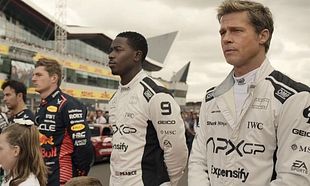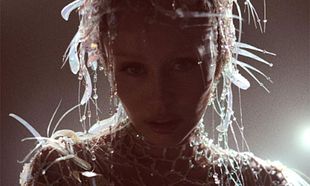A sometimes-solid but sometimes-underwhelming depiction of the birth of the struggle for women’s rights.
It’s 1912 and Maud Watts (Mulligan) has a life typical of most women: no votes, no rights, no nothing. The mother of one sweats in the same laundry as husband Sonny (Ben Whishaw), where she earns less for the same work, and is the victim of sexual harassment at the hands of her bully boss (a slimy Geoff Bell). When she observes co-worker Violet (Duff) breaking windows in protest of the lack of voting rights, she’s inspired to join the WSPU but this rankles with management, hubby and the police, who employ Arthur Steed (Gleeson) to hunt the protestors down…
Writer Morgan can be wonderful (Brick Lane, Shame) and not so wonderful (The Iron Lady asks us to sympathise with Maggie Thatcher) and we have both here. Looking at the movement as a terrorist outfit is a fresh and welcome approach: the leaders’ faces are pinned to a board in a CIA/FBI hierarchy fashion, while Steed urges Maud to see that her poverty and position is being manipulated to do the dirty work by those who shield themselves from the front line. But she’s guilty of some bad decisions too.
The biggest slip up is that her heroine isn’t the most interesting character on show. There’s Emmeline Pankhurst (Streep), of course, and Violet, who is in a similar position to Maud but has a violent husband to avoid; there’s Bonham Carter building bombs in the backroom of her pharmacy; Emily Davison (Natalie Press) throws herself in front of the King’s horse; and there’s a brief mention of Sylvia Pankhurst, Emmeline’s daughter, who disagreed with her mother’s approach and broke from the movement. What? Why aren’t we watching that movie?
Director Sarah Gavron’s (Brick Lane) framing is questionable too. A Big Scene has Mulligan make an impassioned defiant speech to Gleeson, a real rabble-rouser, but Gavron shoots over Gleeson’s monstrous head and shoulders, dwarfing Mulligan; if this is a comment about women’s plight then it is strange that it happens in this I-Will-Never-Back-Down defining moment. But Gavron does come up trumps in other scenes: the prison force-feeding proves to be difficult viewing.
And it looks the business (take a bow cinematographer Eduard Garu, production designer Alice Normington and costume designer Jane Petrie), men are evil enough to get the blood boiling, and the performances are wonderful. Meryl Streep aside, whose name is promo friendly but in truth has two very small scenes, Mulligan, Bonham Carter, Duff, Gleeson and Whishaw are flawless.




















































































